حیواناتی که در آستانه انقراض هستند
Top 10 Animals that are at the verge of extinction
Ever wondered how life would be if there were no animals on this planet? Well, life wouldn’t be the same because animals may seem insignificant or very dangerous to human beings. But each one of these animals plays a very crucial role in the ecological system.Wildlife plays a very significant role by harmonizing the environment. Different species of animals, from large to small, such as; The Rhinos, Elephant, Pangolin etc. are almost extinct. Illegal trade of animals is happening everywhere in the world, and its value is roughly 7-23 billion US dollars. Between the year 2013 and 2016, nearly 20 tons of Pangolin scales are held from prohibited shipment in Africa. If no action is taken against this illegal poaching, these precious animals will disappear from the face of this earth. Below is a list of top ten animals that are almost extinct.
10. Giant Panda
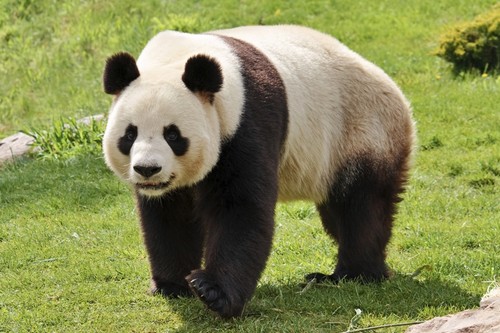
It is also known as panda bear.
Gaint panda originates from central China. It is a treasure here in
China and is adored all over the world. This panda has white and black
colors on its body. Researches shows that adult pandas can live up to 30
years. However, this is not always the case. Because both the Cubs and
adult pandas die because of many predators such as the yellow-throated
martens and the snow leopard that kill and consume this animal. In
particular, pandas are in danger of extinction due to loss and
disintegration of habitat, and by people hunting other animals and
harvesting plants from the forests. The most depraving thing is that
they are also vulnerable to the loss of habitat and destruction.
Nevertheless, only humans can assurance a great opportunity for the
pandas to continue living by protecting them and the environment they
live.
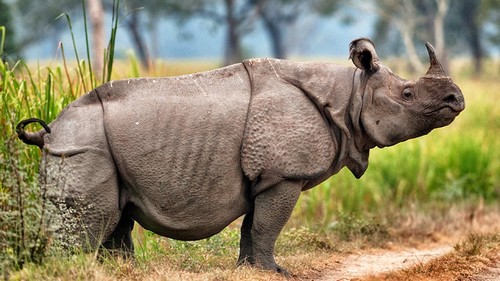
It is the rarest and most susceptible species of rhinos. With only
approximately 60 of them remaining in the National Park of Ujung Kulonin
Indonesia. The most recent rhino died in Vietnam in 2010. This rhino
has only one horn which is around 10 inches. Its body is darkish gray in
color. Its skin has several free folds making it look like a shield.
The population of the rhinos is a major concern, and the small
hereditary variety makes it very hard for them to continue being viable.
The main things that dangers the Javan rhino are; The major explosions of the Anak Krakatau volcano and the tsunamis that kill them in large numbers. Rhinos have also died from diseases in the recent years that are known to have been transmitted by the wild livestock. The WWF is keeping track of the rhinos and observes their movement, distribution, genetic diversity, sex ratio and their behavioral pattern. WWF also supports management of the environment in the national park of Ujung Kulon. The significant efforts concentrating on the removal of the Arenga palm an aggressive species that leaves the place unproductive of foods for the rhinos. It also supports anti-poaching guards.
8. Mountain Gorilla
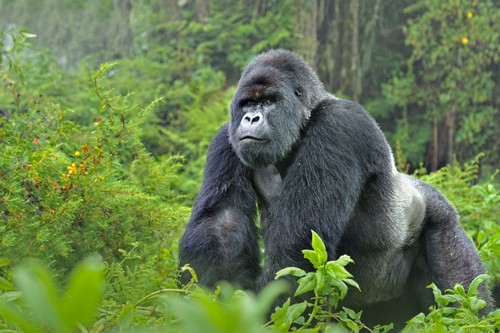
It is yet another animal that is almost becoming extinct. They are found
particularly in Congo, Uganda, and Rwanda. It is the largest and
greatest gorillas. They have featured in several movies such as Tarzan
and King Kong. According to WWF, mountain gorillas are affected by
fragmentation, human-wildlife conflict, and habitat. Therefore it is
very crucial for us to protect them before they become completely
extinct. Mountain gorillas die due to habitat loss, human diseases and
also illegal poaching. WWF is working closely with the governments in
all parts the Congo Basin, international institutions, and timber
companies to encourage talks and the use of excellent environmental
practices in the tree industry.
6. Pangolin
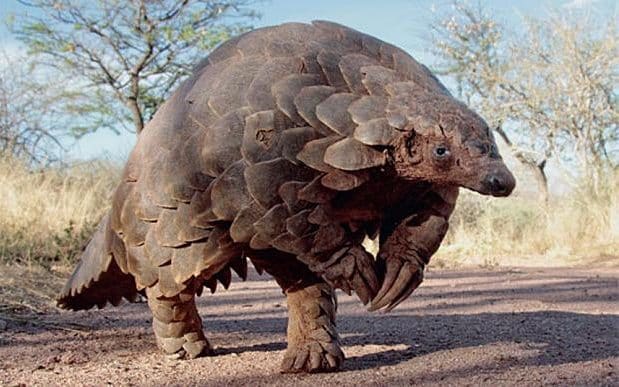
Pangolin is the only mammal whose entire body is covered with scales.
They have large, curved claws for digging termite and ant nests. They
are used to draw barks from trees and pulling logs so as to find their
insect prey. Also, they are known as scaly anteaters, and they are
increasingly becoming victims of illegal poaching in Asia and Africa
where they are found. Their meat is a delicacy while their scales are
highly valued. Only eight species of the pangolin exist today with four
species living in Asia and another four species in Africa. International
and national laws protect these pangolins. These species are on the
list of Critically Endangered on the IUCN Red List of Threatened
Species. In 2011, approximately over one hundred pangolins were victims
of illegal poaching and experts say that this is the most trafficked
animal which will make them extinct.
6. Vaquita
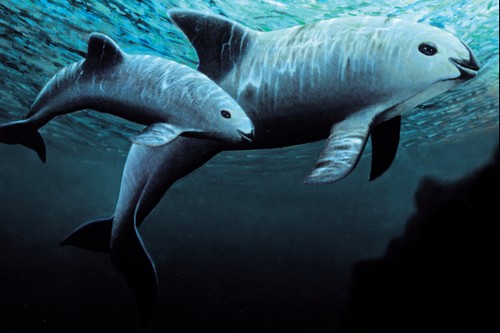
Vaquita is the rarest marine mammal in the world. Its body is gray with a
white stomach, and around the eyes, it has dark patches. Of the seven
species of the Vaquita, it is the smallest and the only one that in the
Eastern Pacific Ocean where waters are warm. They live in a tiny area in
the Gulf of California in the north. According to the WWF, only 30
vaquitas are remaining. The greatest threat is accidental deaths when
they get got in gillnets that are meant to catch other marine species.
If a ban on the gillnet is not enforced, then they will become extinct
very fast and probably by 2018. It is therefore important to completely
remove all these nets so that we can save the vaquita.
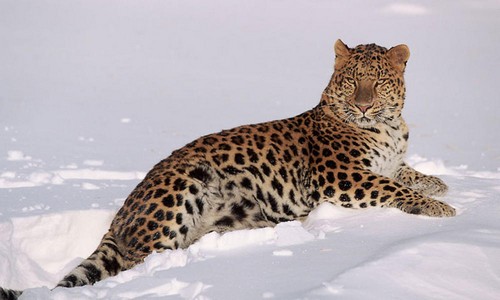
There are only 35 Amur leopards existing in the world today because many
of them have been lost mainly due to illegal poaching and habitat loss.
Amurs live in the Northern parts China and Russia in the Far East. This
leopard lives a very self-contained life. They are also adamant and
very fast. The biggest danger to the Amur leopard is illegal poaching
since their fur is exquisite and spotted coat which makes it very
expensive and can cost up to 1000 dollars. An organization consisting of
Russian and 15 international NGOS has been formed to support the
protection of the Amur leopard. It is known as the Amur Leopard and
Tiger Alliance (ALTA), and it collects money raised by the international
zoo community, corporate and public sponsors for implementing
organizations that are working to save these magnificent and vulnerable
animals.
4. Sumatran Orangutan
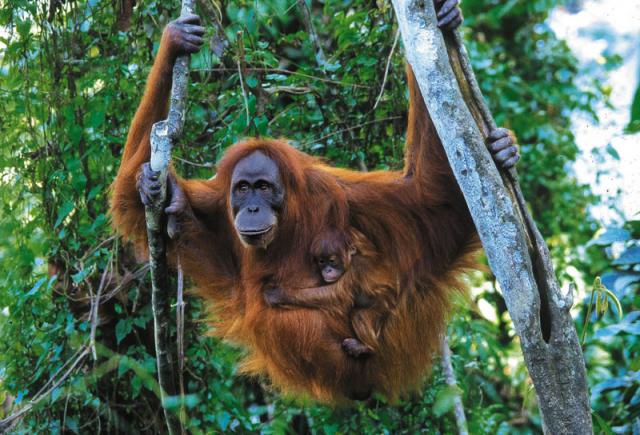
It is one of the two species of orangutan, which is found in Indonesia
on the island of Sumatra. Only eight orangutans that are presently kept
in quarantine cages at the Sumatran Orangutan Conservation Programme at
the Quarantine Centre are remaining because they require long time care
due to disability and health related issues and they can therefore not
be released into the wild just yet. The greatest threat for the
Orangutan is the extensive destruction of the Sumatran rainforest by
human activities such as logging, mining, construction of roads and it
is also cleared to provide land for farming, which has made them easy
targets for poaching because their population is left isolated and
fragmented. In the process of capture and transport, approximately 6-8
of them die every day. International laws have been set that discourage
illegal trading of this beast.
3. Saola
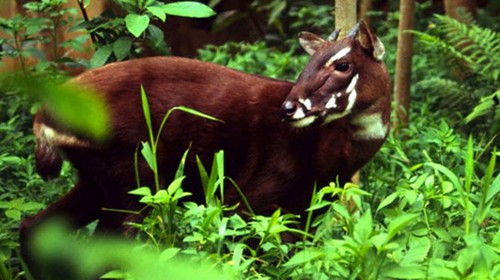
They were discovered just the other day in the year 1992. And, they are
already on the edge of being extinct, with populations predictable to be
as low as only a few dozen. They are being threatened mainly by habitat
loss and hunting. Soala look like antelopes with two black horns that
are long and smooth that are parallel and are curved backward a little.
Their horns can grow up to 50cm long. They have white patches on the
cheeks, lips and the chin. They exist in Vietnam and Laos.
The biggest risk to the saolas is hunting done for their meat and horns that are used as trophies. Villagers set traps that catch these saolas. Another threat is habitat loss because humans are clearing forests for infrastructure and agriculture and this is the home for these saolas. WWF has have been involved with the protection of the saola thus reinforcing and creating protected areas and working on research, community centered forest controlling, capacity building, and strengthening law implementation.
2. South China Tiger
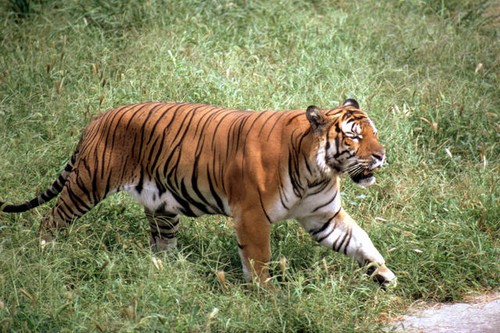
It is also known as the Amoy found in the forests of South China. Its
size is smaller than other sorts of the tiger. It is the most critically
threatened cat. Only approximately 30-50 of them remaining. China hunts
it at a very high rate. Which has become the greatest threat to wiping
them out of the face of earth. To help save this tiger today the WWF is
planning to introduce captive-bred tigers into the forests.
1. Hawksbill Turtle
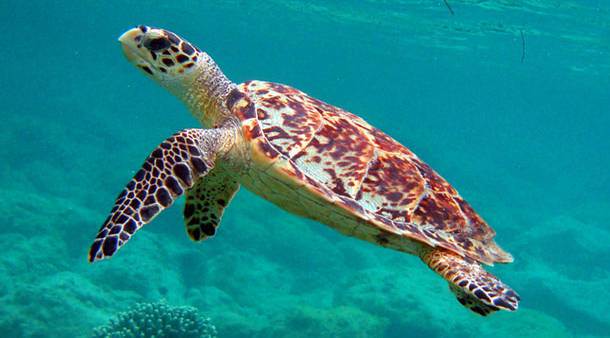
They have pointed, and narrow beaks with a distinctive shape of
overlapping scales on the shell that form a saw like look on the edges
thus making them precious in the markets. They are found primarily all
over the tropical oceans, mostly in coral reefs. The primary threat to
these magnificent creatures is the unintended internment in fishing nets
and over-exploitation by humans because of their beautiful shell and
their meat. Also, their eggs are a delicacy to many people.
They also die because of habitat loss. Because of the decline in the coral reefs mainly due to destruction by humans. Several international treaties and agreements along with national laws protect the Hawksbill Turtle. Records in the Convention on International Trade in Endangered Species forbids the trade of this turtle. It is also categorized as critically endangered by The World Conservation Union. The population of this turtle is also monitored regularly by the National Marine Fisheries services.
It is therefore very evident that the greatest enemy that contributes to wildlife extinction are the humans; Through pollution, habitat depletion and degradation. Thus it is our responsibility to conserve animals, and the best way to do this is by first saving the environment around us.
Written By; Susan Wanjiku.
- ۰ نظر
- ۲۶ تیر ۹۶ ، ۱۲:۲۵

